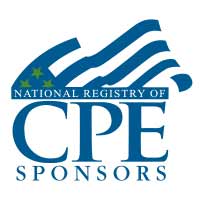Classroom Sessions:
| Date | Venue | Fees | |
|---|---|---|---|
| 05 - 09 Aug 2024 | Dubai - UAE | $5,950 |
INTRODUCTION
The annual losses due to corrosion and the cost of rectification run to several billion dollars in oil & gas exploration industries around the world. High production under aggressive and extreme operational conditions necessitates the development of new materials which also have peculiar failure behaviors. Thus the industry operators are on continuous perusal with different corrosion management strategies. Yet unforeseen failures of top-side, sub-surface and sub-sea infrastructure due to corrosion not only entails in loss of production but loss of life as well. Prediction of failure behaviors, remaining useful life, corrosion preventive measures are all approaches in corrosion management for safe and economic operation of production wells and other facilities. The Successful corrosion management influences the economic outcome of the company by ensuring cost effective selection of materials, chemical treatments, coatings, cathodic protection systems and appropriate designs.
Objectives
This course is designed for engineers and operators engaged in oil and gas exploration industry requiring an understanding of corrosion fundamentals: the causes and control of corrosion in oil and gas production and processing. This course will provide an overview of what corrosion is and what the major corrosion issues are in upstream oil and gas operations. The focus will be on understanding how materials corrode, what techniques are used to monitor corrosion and some basic corrosion control fundamentals. The participants will be introduced to inhibitors and how they work, corrosion monitoring in field applications and cathodic protection. The course content is presented from a practical production operations viewpoint and provides participants with the basic skills and understanding to control and solve corrosion issues.
Training Methodology
- The course combines sound engineering principles, methods and applicable standards.
- All lectures are in colorful Power-Point presentation.
- All lectures are interspersed with interactive discussion.
- All lectures include group discussion, case history and exercises
- Actual major incidents as well as industry experience are reviewed.
- Participants receive a multicolor course manual.
- Pictures of real incidents and case history are shown.
- Videos on the subject are shown.
Organisational Impact
The Company will achieve improved corrosion management system through the performance of an efficient corrosion control methods based on total life cycle corrosion economy.
Personal Impact
Participants will be more able to actively contribute towards reducing the probability of less unforeseen failures in overall corrosion control approaches.
Participants will enhance their competence and productivity thereby enhancing their competence and performance and making additional value added contributions to their organizations in the discipline of corrosion management systems.
WHO SHOULD ATTEND?
Personnel who are working in technical areas related to assets integrity management who deal directly or indirectly with corrosion monitoring and its control.
DAY 1
Section One - Oil & Gas Production Fluid
- Origin and Production of Oil & Gas
- Chemical Compositions of Production Fluids
- Oilfield Equipment
- Overview of Oilfield Processes & Operations
Section Two - Metallurgy
- Chemical Properties of Metals
- Mechanical Properties
- Alloying Elements
- Cooling of Metals
- Crystalline Forms of Metals
- Metal Defects
- UNS Numbers
- Properties of Common Oilfield Metals & Alloys
- Metallurgy of Oilfield Equipment
DAY 2
Section Three - Corrosion Damage
- Corrosion Fundamentals
- Common Forms of Corrosion
- Corrosion Monitoring in Plant and Facilities
- Non-Destructive Testing (NDT)
- Corrosion Failure & Root Cause analysis
- Group Discussion- Applicable Standard Study for Corrosion Monitoring
Section Four - Oilfield-Specific Corrosion
- Internal Corrosion
- Water Corrosion
- Sour Corrosion
- Sweet Corrosion
- Oxygen Corrosion
- Top of Line Corrosion (TLC)
- Microbiologically Induced Corrosion (MIC)
- Sand Erosion
- External Corrosion
- Atmospheric (Marine) Corrosion
- Corrosion Under Insulation (CUI)
- Corrosion of Pipe Flanges
- Underground Corrosion
- Stray Current Corrosion
- Seawater Corrosion
- Oilfield Equipment Corrosion
- Case Study-Plant Aging and Life Extension Program
DAY 3
Section Five - Corrosion Prevention & Control Measures
- Corrosion Control by Operations
- Corrosion Control by Processes
- Corrosion Control Design
- Corrosion Control by Material Selection
- Group Discussion-NACE MR0175/ISO 15156-1 H2S Corrosion Resistant Materials
Section Six - Cathodic Protection (CPS) Systems
- Cathodic Protection Fundamentals
- Galvanic Anodes CPS
- Impressed Current CPS
- CPS System Maintenance
DAY 4
Section- Seven - Barrier Film (Coatings and Lining)
- Coating Fundamentals
- Performance Characteristics of Industrial Coatings
- Types of Coating Systems
- Surface Preparations
- Coating Applications
- Coating Defects
Section Eight - Chemical Treatment
- Corrosion inhibitors
- Performance Evaluation of Corrosion Inhibitor
- Application of Corrosion Inhibitors
DAY 5
Section Nine - Biocide Treatment
- Microbiologically Influenced Corrosion (MIC)
- Sulphate-Reducing Bacteria
- Biocide Selection & Treatment
Section Ten - Non-Metallic Materials
- Polymers
- Composite Materials
Section Eleven - Corrosion Management Strategy (CMS)
- Corrosion Management of Oilfield Equipment
- Corrosion Economy
- Corrosion Key Performance Indicators (KPIs)
- Asset Integrity and Corrosion Management
- Codes & Standards
- Corrosion Data Management
- Case Study-Catastrophic Corrosion Failure
- On successful completion of this training course, GLOMACS Certificate will be awarded to the delegates
- Continuing Professional Education credits (CPE) : In accordance with the standards of the National Registry of CPE Sponsor, one CPE credit is granted per 50 minutes of attendance
Endorsed Education Provider
GLOMACS is registered with the National Association of State Boards of Accountancy (NASBA) as a sponsor of continuing professional education on the National Registry of CPE Sponsors. State boards of accountancy have final authority on the acceptance of individual courses for CPE credit. Complaints regarding registered sponsors may be submitted to the National Registry of CPE Sponsors through its website: www.NASBARegistry.org
In Association With

PetroKnowledge
Our collaboration with Petroknowledge aims to provide the best training services and benefits for our valued clients


